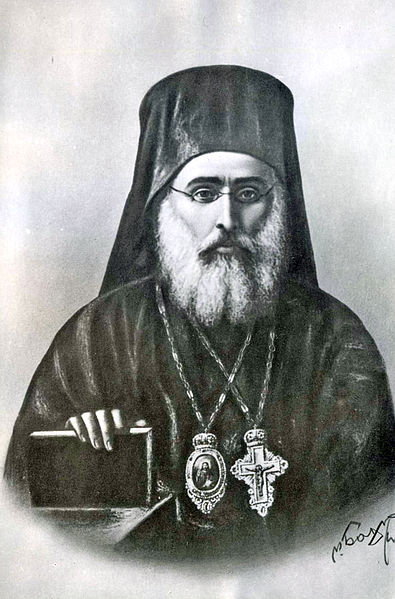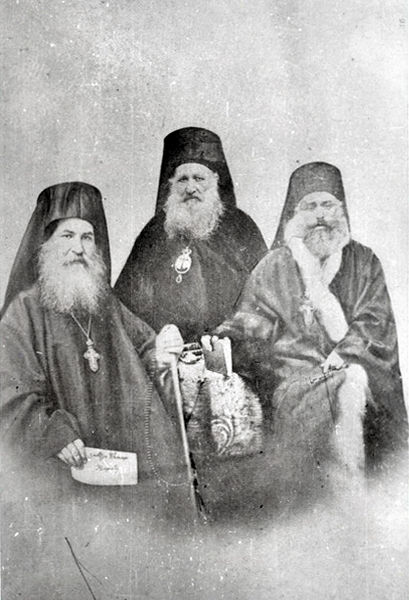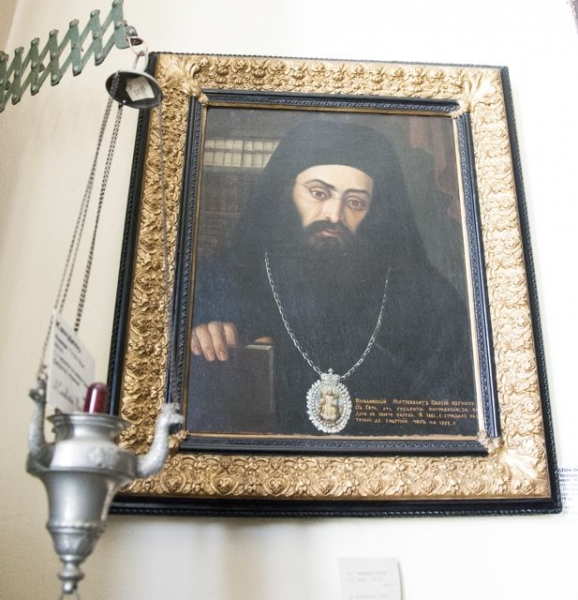Pictures - Polina Spartyanova, Wikipedia
Polina Spartyanova
The ecclesiastical-national struggle of the Bulgarians against the Greek clergy during the Renaissance was one of the most difficult and important battles faced by enslaved people on the way to their freedom. Since the Bulgarian population led the longest and hardest struggle with the Phanariot church in the Balkans, setting up many Bulgarian schools and cultural centres, it marked the greatest cultural progress during the Renaissance in the Balkan region. The restoration of the independent Bulgarian church became a cause for the Bulgarian population at the beginning of the XIX century, when Patriarch Gregory obliged clergymen to disseminate Hellenism among the Orthodox population of the Ottoman Empire. Gradually the Greek language was imposed not only in church matters, but also in literature and the everyday economic life of the Bulgarians, and the higher clergy began to openly tolerate Greek communities and protect their cultural, educational and economic interests. However, amid these events, one of the representatives of the Greek clergy - Bishop Paisius of Plovdiv managed to shine forth.

Paisius of Plovdiv is an Orthodox cleric who is determined by Bulgarian Patriarch Kirill, also a Metropolitan of Plovdiv, as "a great spirit, who was born in the spiritual homeland of Hellenism, but who managed to overcome its historical weakness. However, above all, he is the pride of the Bulgarian people "because of his contribution to the ecclesiastical-national struggle of the Bulgarians. He was born in 1810 in the city of Ioannina, where, after graduating from the University of Athens with a degree in theology, he became a deacon and coadjutor to Ioannina bishop Joachim, who later became Oecumenical Patriarch.
In 1853, Paisius was consecrated bishop and appointed bishop of Smyrna (now Izmir, Turkey), but four years later he was appointed bishop in the Bulgarian city of Plovdiv. At that time, the Bulgarian community in the city asked the Patriarchate for the appointment of a Bulgarian bishop, but their request was not granted. Once settled in Plovdiv, Paisius travelled around the bishopric and to the surprise of the Bulgarian population, collected bishop taxes which were less than the conventional ones, leaving part of the same revenues to municipalities. During his service in Plovdiv, he did not oppose liturgies in Bulgarian and made personal donations to individual Bulgarian schools. In 1859, he promoted Bulgarian Apostle of Freedom Vasil Levski to hierodeacon.

At that time, Plovdiv and Plovdiv bishopric played an important role in the ecclesiastical-national struggle of the Bulgarians against the Greek clergy. Precisely in "St. Mary's" church on December 25, 1859 Paisius and the chief priest of the church, Zlatan, said mass on the day of the Nativity in Church-Slavonic and not in Greek. This was the first major achievement of the Bulgarians in the struggle for independence of the church in the city. Later, in 1861, in the same church it was officially declared that the city and the bishopric did not recognize the authority of the Patriarch. Paisius protected the right of Bulgarian people for church independence as their bishop and therefore renounced the Patriarchate of Constantinople, and took the side of the Bulgarians in their struggle for gaining national church independence. For this reason, in the same year, he was sent into exile by the patriarchate of Mount Athos to Asia Minor until 1868.
During the exile of Paisius of Plovdiv, he remained undisputed Metropolitan of Plovdiv, who was recognized by the entire bishopric. The diocesan council also decided not to recognize another bishop sent by the Oecumenical Patriarchate, since this would have meant recognizing the patriarchal power over Plovdiv bishopric and proceeding with the vow of separation from the Patriarchate.

After Paisius returned from exile, he became an active participant in the struggle for church independence of the Bulgarians and was included in the Temporary Exarchate Council in 1870. At the first ecclesiastical-national council in Constantinople in 1871 he declared: "Plovdiv bishopric never ceased to comfort and support me... I have fought for justice and will never stop fighting; I will not give up the clergy and people." He was one of the nominees for the Exarch in the recently-won Bulgarian Exarchate, but died in 1871 during the establishment of the Exarchate. According to Prof. Nikolay Genchev, "Since he took the side of the Bulgarians, Paisius had to bear his cross and prove that his life was a deeply thought- position which left his name in Bulgarian national history and in the history of the Bulgarian church forever."
